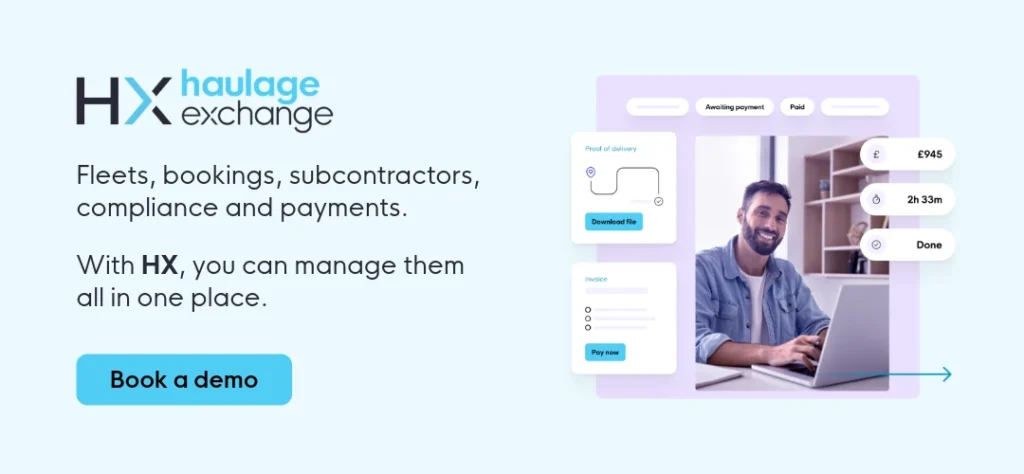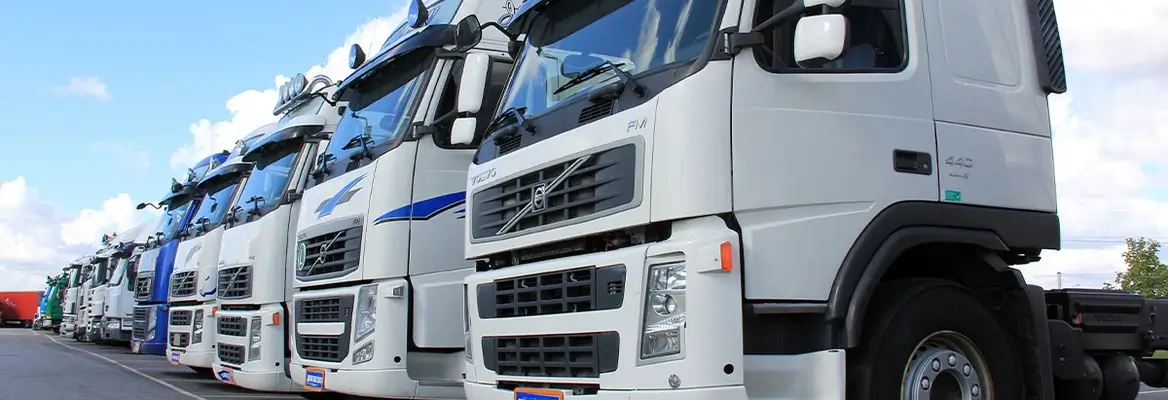Today’s haulage industry is very different from the one that existed even 30 years ago. Where it once primarily centred around the transport of raw materials such as coal and metal, there is now a growing focus on consumer goods, spurred on by online retail.
Indeed, the keys to success are relatively simple: namely, that you need to establish a niche and keep your costs low.
Of course, this is often easier said than done, especially for small companies who are just starting out.
That’s why we’ve written this article to help you. Sharing our top tips for starting a haulage company, we hope you’ll find it useful.
What we’ll cover
Tip #1. Identify your niche
When it comes to starting a haulage business, the best place to start is by deciding what sort of service you wish to offer.
While there’s nothing to say that you cannot operate in a variety of different areas, it’s often helpful to establish yourself in a particular niche, to begin with, in order to differentiate yourself from your competitors and attract some more specialist clients that need specialist freight services, before you seek to expand.
This could include areas such as livestock, waste disposal, parcel delivery, vehicle transport, or even delivering to airports with a cargo operative certification, but whatever specialism you select, do make sure that you do your research first.
If there isn’t a large enough market out there for your services, you’ll struggle to get your idea off the ground.
Tip #2: Decide on the size and type of fleet you want to build
When you’re starting a haulage company, we recommend starting out small as a precautionary measure, but this is entirely down to your discretion.
Although it can be tempting to go all-in, statistics from the Road Haulage Association show that many companies operate on a lesser scale, with 87 percent having fewer than five vehicles, and 57 percent have only one. That’s because smaller fleets mean lower overheads – a handy asset in a highly competitive industry. This still gives you the option of building your business as you go, even if it’s in a more organic and sustainable manner than diving in headfirst.
Once you’ve settled on how many lorries or trucks you want, you’ll also need to decide whether petrol vehicles, diesel vehicles, or a more eco-friendly option will best suit your business, as well as what size and shape you would like your transport to be. These choices should be made with the services you offer in mind, to ensure that your fleet is ideally suited to the job at hand.
Do be aware, too, that vehicles over 3.5 tonnes will require an operator’s license if you wish to use them as part of your business.
To help you decide, check out our guide to UK lorry sizes.
Tip #3: Choose a location
No matter your niche or the size of your fleet, you’ll need an operational base for storage, maintenance, and fleet management. The location of this is important and must be chosen carefully.
A key factor is whether there’s easy access to major road routes, both for your own drivers and for suppliers making deliveries. Rental costs also vary widely. While vehicle warehousing tends to be cheaper than standard commercial properties, prices for London haulage companies can be up to three times higher than in Scotland or Wales. Lower rental costs mean lower overheads, but access and convenience must also be considered.

Factors to consider when choosing a location:
- Proximity to major roads and motorways – Easy access to transport routes helps with efficiency and fuel costs.
- Cost of rent or purchase – Prices vary by region, so balance affordability with accessibility.
- Availability of parking and loading space – Sufficient space for HGVs, trailers, and loading/unloading is essential.
- Local planning regulations – Some areas have restrictions on commercial vehicle depots.
- Proximity to customers and suppliers – Being near major clients or distribution centres can reduce travel time.
- Security and crime rates – Locations with higher theft risks may require additional security investment.
- Access to fuel stations and service centres – Keeping your HGVs maintained is easier with nearby facilities.
- Local workforce availability – If hiring haulage drivers, being near a skilled workforce is a bonus.
- ULEZ and clean air zones – If operating in or near cities, consider the impact of HGV emissions regulations.
Taking the time to choose the right location can reduce costs, improve efficiency, and support long-term growth for your haulage business.
Tip #4: Work out your costs
Even after finding a suitable location, there is more to think about before you sign on the dotted line.
It’s really important not to make any final decisions until you have taken into account all of the necessary considerations, and these include any regular costs you’ll be running.
Along with staff wages, vehicle purchase and maintenance, and your rent, they will constitute a large part of your monthly outlay, so make certain that you factor them into your calculations. They include fuel, insurance, vehicle cleaning, and Vehicle Excise Duty, along with the costs we’ve already outlined above.
Tip #5: Be aware of your legal obligations
As you already know, vehicle insurance is mandatory, but it’s not the only type of cover you’ll need. Public liability insurance and professional indemnity insurance are also required, as is the employer’s liability once you hire drivers and/or other members of staff like transport managers or a Dangerous Goods Safety Adviser for hazardous freight.
With this in mind, you might find it easiest to get in contact with a company like the Road Haulage Association’s Insurance Service when arranging your policies.
In addition to having proper insurance in place, there are certain other rules you’ll need to comply with, including tachograph legislation and cabotage laws if you’re transporting freight in the EU. These were put in place to stop drivers from working past a set number of hours, and flouting it can result in severe penalties.
Tip #6: Starting a haulage company with a freight exchange
Last but not least, we’d recommend signing up to Haulage Exchange. Created to make managing freight easier, it is designed to make the entire process of running a haulage company simpler and more streamlined. As well as allowing you to check the status of your freight operations at any time, it has a number of other handy features to help you out.
These not only make it easier to find compliant and trustworthy drivers for your company but can you save time and money too. When it comes to entering the competitive world of the haulage industry, the key to success is laying the groundwork in advance, and with these handy tips, starting a haulage company has never been easier.
Start your haulage company with Haulage Exchange
Get access to 13,000+ loads a day, build your customer list, and manage your finances.
Frequently Asked Questions
How much does it cost to set up a haulage firm?
The costs to start a haulage company in the UK can vary widely depending on your fleet size, location, and niche. On average, initial costs can range from £20,000 to £50,000 for a small operator. This includes vehicle purchase or leasing, insurance, licencing fees, premises, and ongoing operational expenses like fuel and maintenance.
Do I need an operator’s licence?
Yes, you must apply for a Goods Vehicle Operator’s Licence if you plan to operate vehicles over 3.5 tonnes. This licence is issued by the Traffic Commissioner and includes requirements such as demonstrating financial standing, vehicle maintenance systems, and compliance with drivers’ hours rules.
Can I run a haulage business with just one lorry?
Absolutely, many owners start with a single vehicle. This approach allows you to keep overheads low while building client relationships and establishing a steady workflow. As your contracts and workload grow, you can gradually expand your fleet and operational capacity, or subcontract the extra work on Haulage Exchange.
What insurance does a haulage business need?
To start a transport company, you’ll require Goods in Transit insurance, public liability insurance, and vehicle insurance as a minimum. If you hire staff, employer’s liability insurance is also compulsory. Optional covers like professional indemnity can also protect you if you offer additional services, like ADR haulage.
Can I run a haulage company from my home address?
It’s possible to start a trucking company from home, especially when you’re working as an owner-operator. You’ll still need space to park your lorry and meet local planning regulations, but many operators work from home before moving to dedicated depots as their business grows.
What qualifications do I need to run a haulage business?
To legally start a haulage company, you need a Transport Manager Certificate of Professional Competence (CPC) or access to someone who holds one. This ensures your company complies with regulations covering fleet operations, driver safety, and working time rules.




